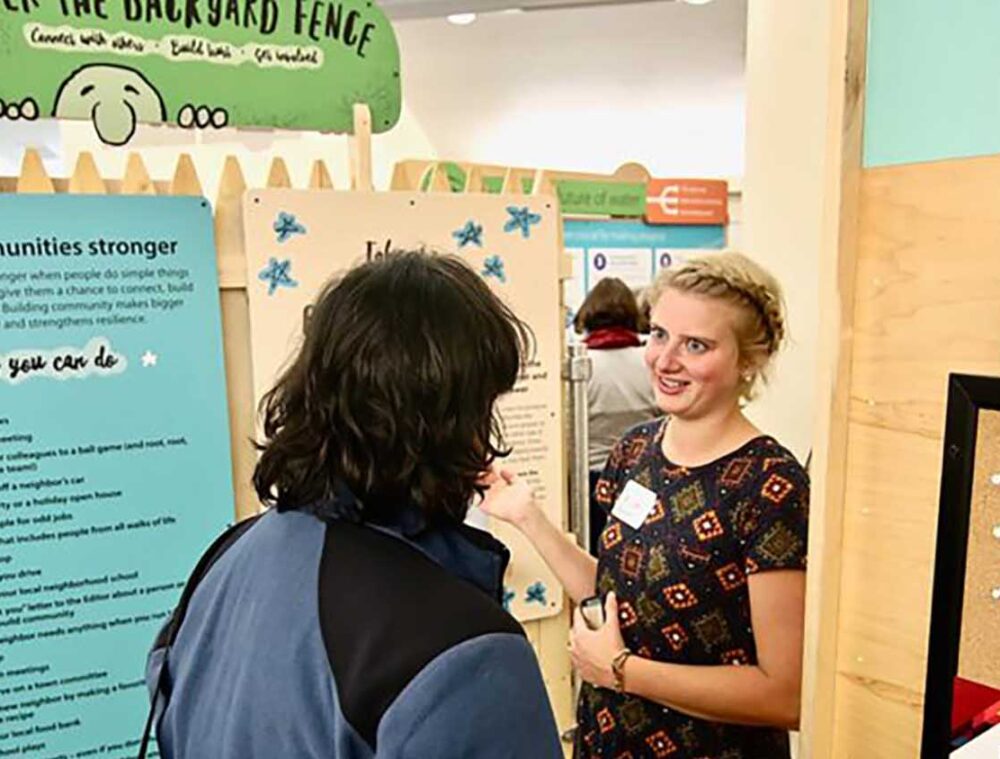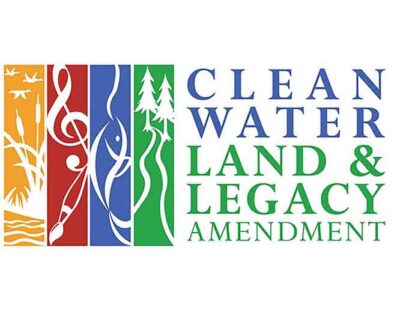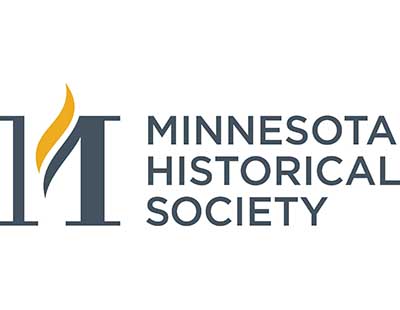We Are Water MN
Bridging scientific knowledges and human relationships with water
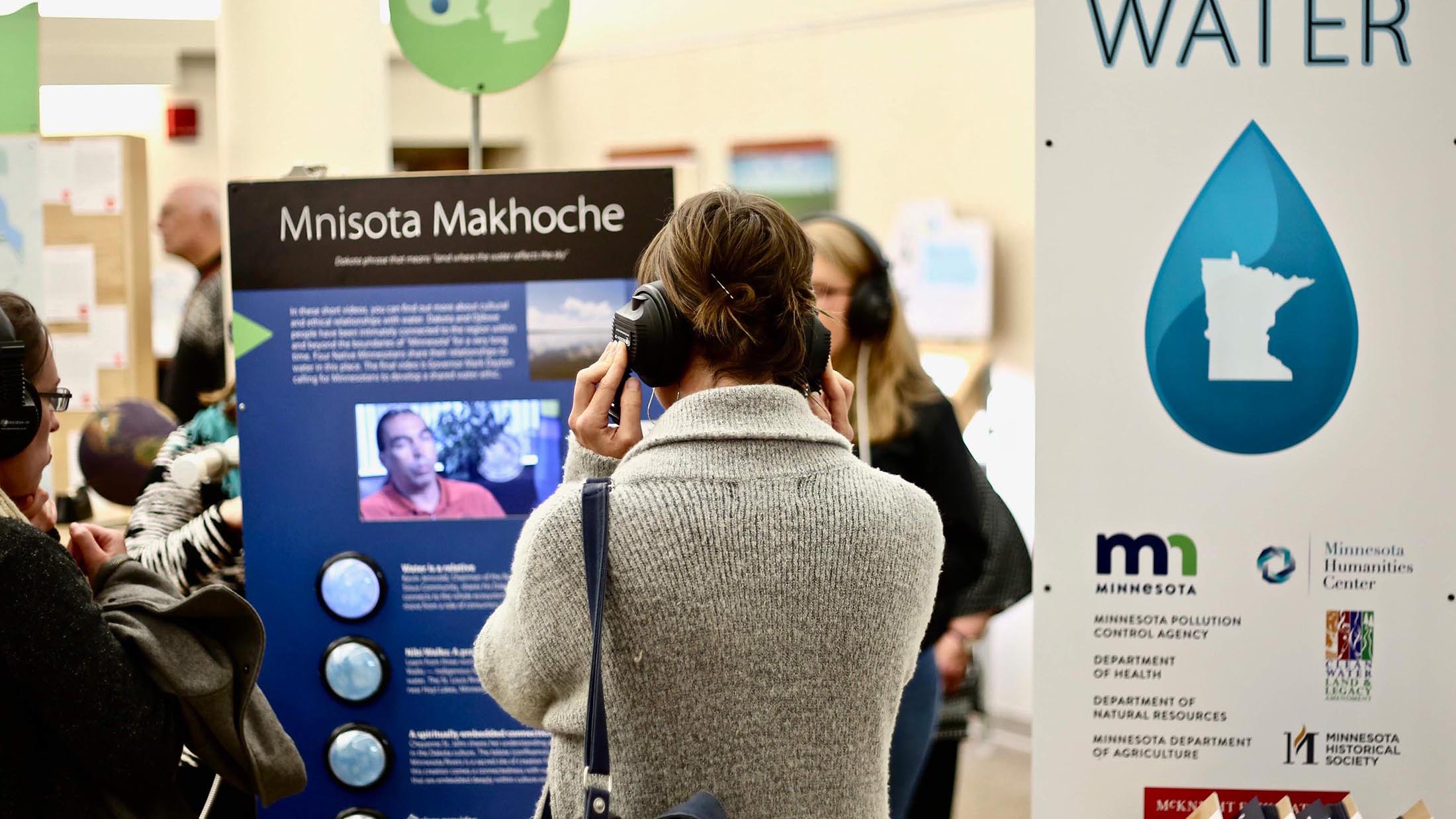
We Are Water MN deepens connections between the humanities and water through a network of partnerships, a traveling exhibit, and public events. We Are Water MN helps communities, organizations, and individuals make better, more collaborative, and more relevant choices about water.
Contact Us
Trygve Throntveit
Follow Us
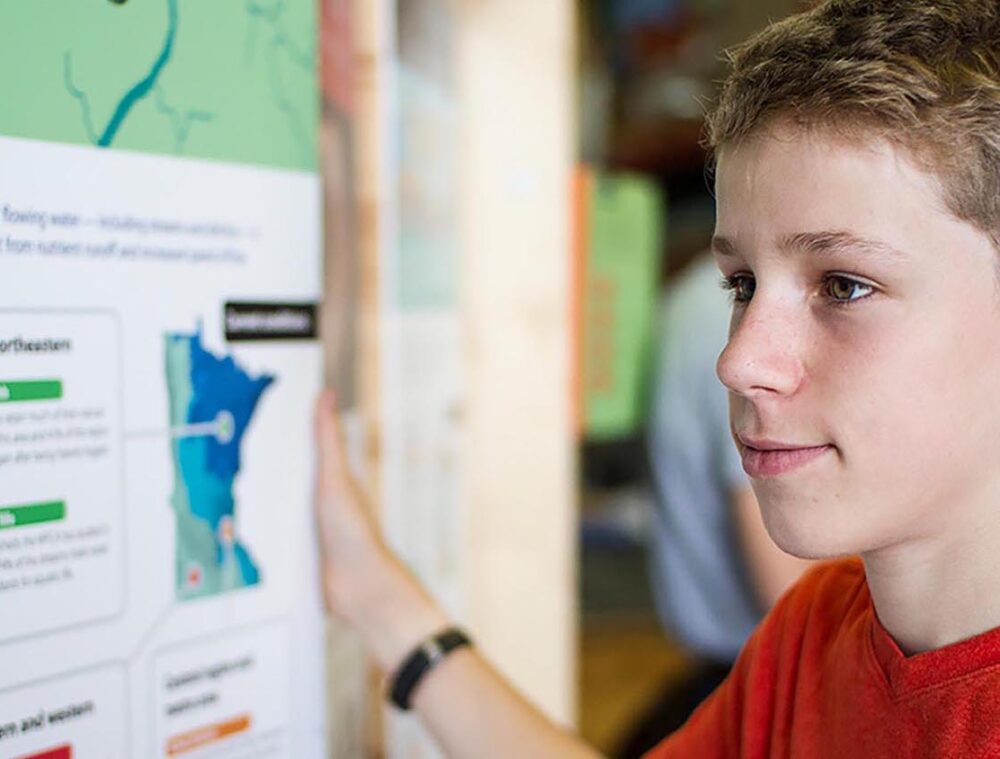
Traveling Exhibit
The traveling exhibit examines water issues statewide and in local communities through personal stories, histories, and scientific information. It strengthens Minnesotans’ relationships with water, exposes visitors to new perspectives, and increases participation in water stewardship activities.
2024 “We Are Water MN” Host Communities
February 29-April 22, 2024
Duluth
April 25-June 17, 2024
Holdingford
June 20–August 12, 2024
North Branch
August 15–October 7, 2024
Cass Lake
October 10-December 5, 2024
Shakopee
Public Events
While the exhibit is in town, host communities and their partners design public events that connect people both to water and each other. The state partners also co-design public events with host communities, including Nibi Walks, Water Bars, facilitated conversations, and story-sharing events.
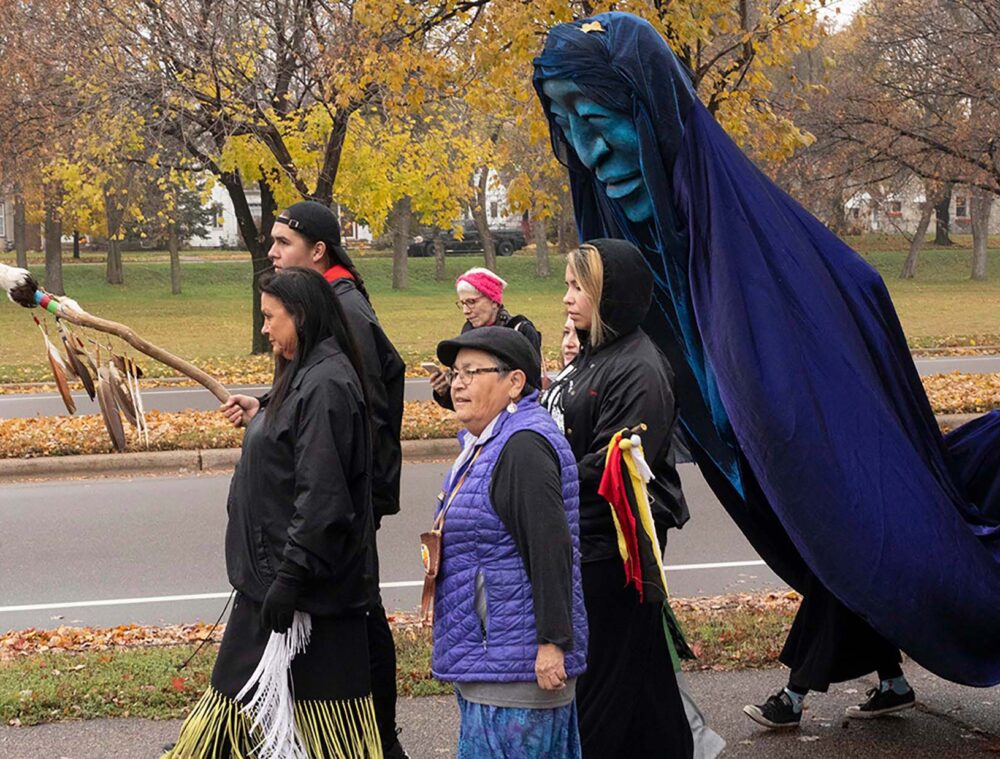
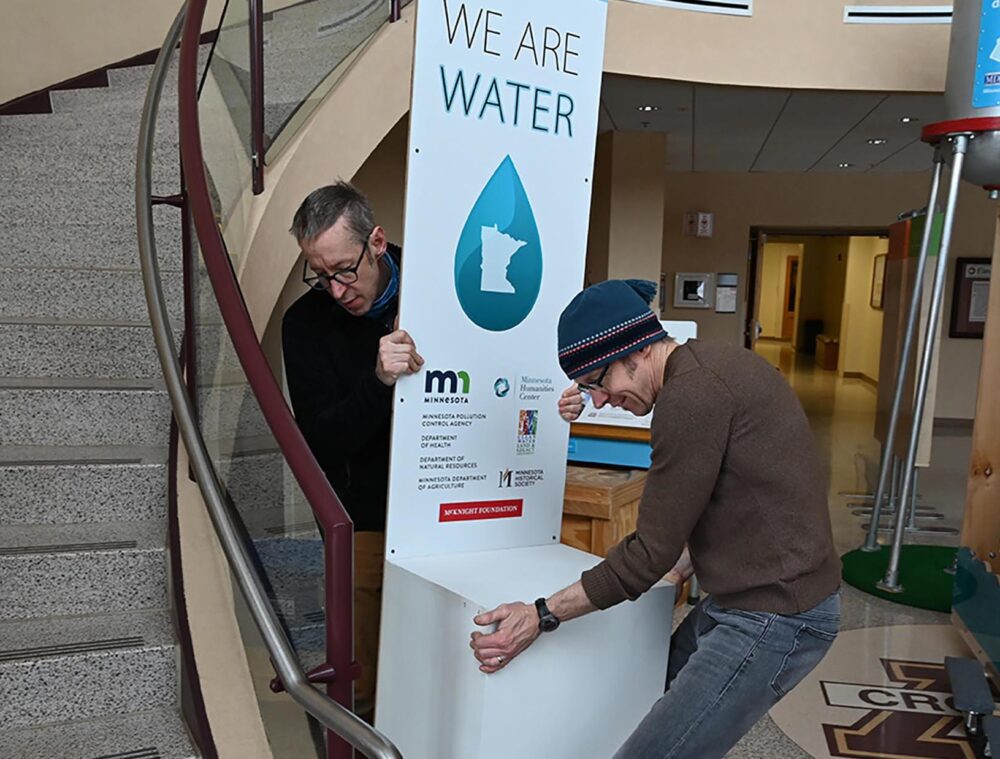
State and Local Partnerships
Our partnership network uses the humanities to spark water change for Minnesota and is made up of six state partners—the Minnesota Humanities Center, Minnesota Pollution Control Agency, Minnesota Historical Society, Board of Water and Soil Resources, and Minnesota Departments of Agriculture, Health, and Natural Resources—and local host communities who build local networks to connect people to water in Minnesota. By creating relationships around water, we expand local and state networks that can work toward a shared vision on this and future projects.
Story Collection
Water stories allow visitors to share personal experiences while learning about others’ relationships with water. These stories capture a wide range of experiences with water—both the everyday and the deeply personal. Used as exhibit content, in and with public events, and as part of a permanent collection, these stories express Minnesotans’ many relationships with water.
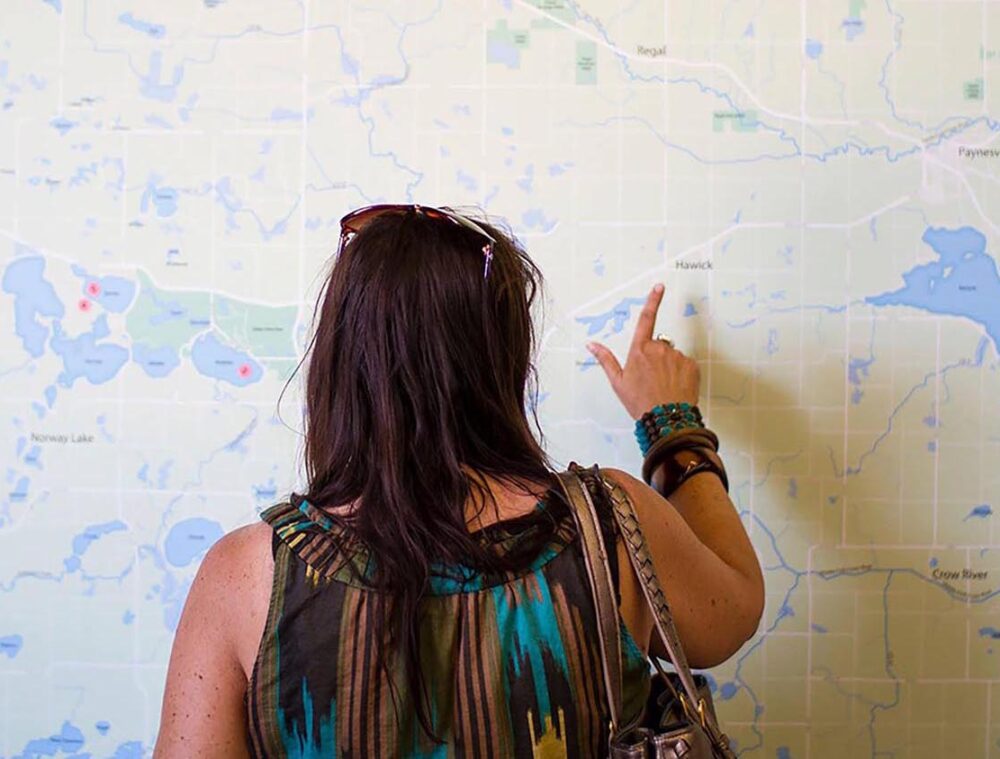
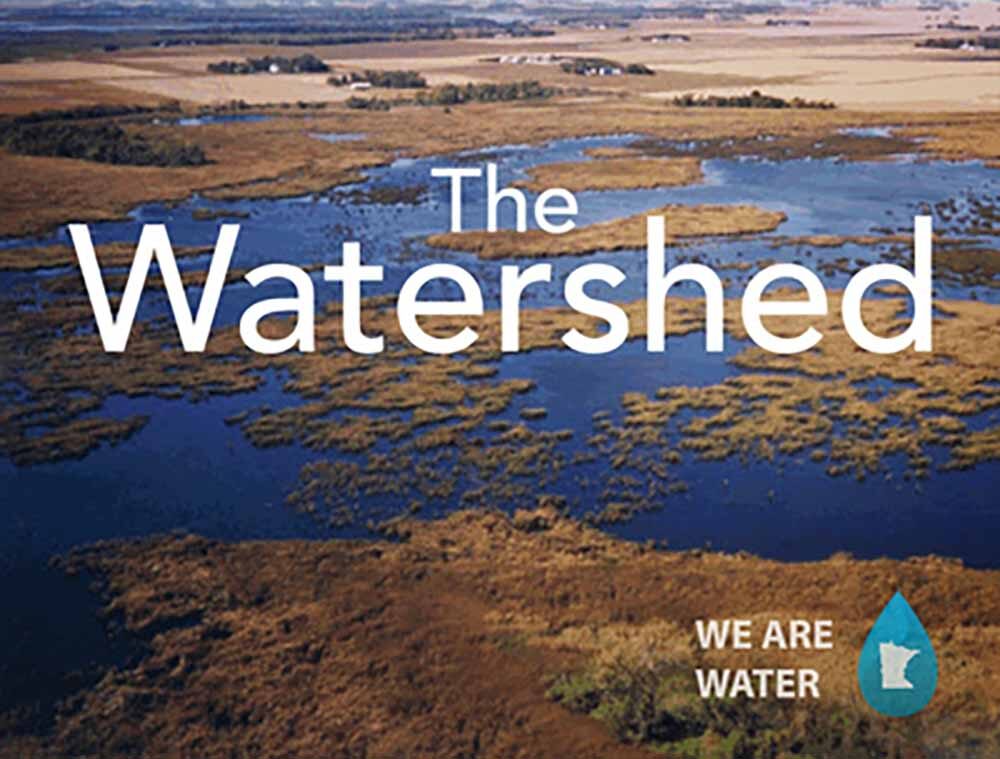
Watershed Podcast
The Watershed is a podcast exploring stories about water and people from communities throughout Minnesota. New episodes every Friday. The Watershed is produced by We Are Water MN, a partnership of the Minnesota Humanities Center, the Minnesota Pollution Control Agency, Minnesota Historical Society, University of Minnesota Extension, the Board of Water and Soil Resources, and Minnesota Departments of Health, Agriculture, and Natural Resources with support from the Clean Water, Land & Legacy Amendment and the National Endowment for the Humanities.
Educator Resources
We Are Water MN has created resources for volunteers, staff, and educators to help others appreciate and enjoy We Are Water MN. They include reflection questions, activities that expand upon exhibit content, conversation starters, ideas for group visits, and extension lessons.
